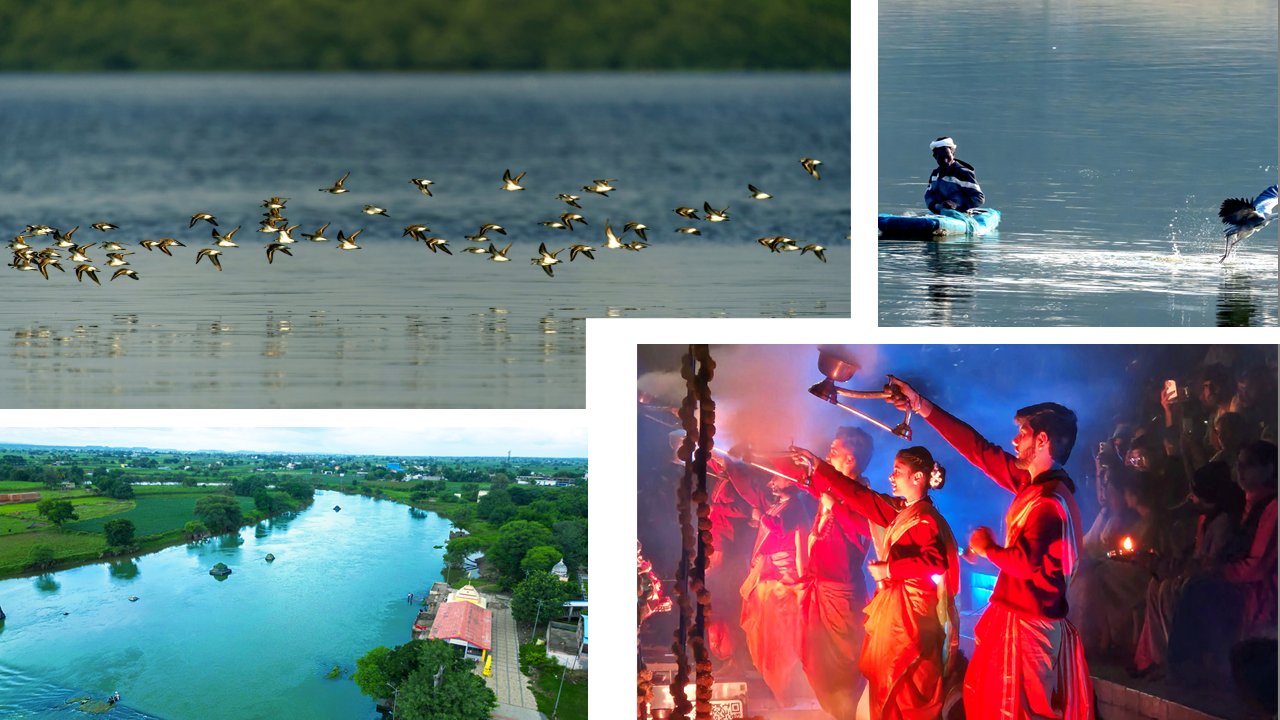TGI: Collective Action for a Sustainable Future of the Godavaro

The Godavari River Basin is one of India’s largest and most complex river systems, spanning six states and supporting over 70 million people. Often referred to as the Dakshin Ganga (Ganges of the South), the river originates in the Western Ghats of Maharashtra and flows eastward for over 1,450 kilometers before emptying into the Bay of Bengal.
With particular focus in Maharashtra, The Godavari Initiative (TGI) represents the first phase of a full-basin vision for the Godavari Basin to address the urgent water challenges facing the region. The initiative coordinates a multi-stakeholder collaborative platform for corporates, government, and civil society to meaningfully engage in collective action through investments in various water security projects and nature-based solutions that are monitored to reflect basin-level impact. TGI further facilitates capacity building, research and innovation, benefit sharing, and practical learning.
In this first phase, the management structure, work plan, and governance mechanisms of TGI will be implemented and refined specifically for the Upper Godavari. Insights and outcomes from TGI will inform the eventual scaling of activities across the entire basin.
Recognised as a priority basin due to its ecological significance, socio-economic and cultural importance, and growing water stress, the Godavari plays a vital role in India’s agricultural productivity, industrial growth, and rural livelihoods. The basin is also home to rich biodiversity, sacred sites, and diverse communities, all increasingly vulnerable to the pressures of pollution, and climate variability.
The Godavari Basin offers a powerful opportunity to demonstrate how shared water resources can be managed more sustainably through collective action. As water needs continue to grow across agriculture, industry, and urban settlements, so does the recognition that no single actor can address these challenges alone.
Upstream and downstream regions are deeply connected, making cooperation across geographies, sectors, and institutions not just valuable, but necessary. While pressures like groundwater stress, changing rainfall, and water quality concerns exist, they also open the door for innovative partnerships and community-driven solutions.
Across the basin, there is growing momentum toward more inclusive governance, better data sharing, and locally anchored initiatives — setting the stage for systemic change that balances ecological integrity with human development.

The Godavari Basin is at an inflection point and collaboration is key.
Partners across sectors can play a role in:
The Godavari Basin is a dynamic landscape, one that continues to evolve under the pressures of development, shifting climate patterns, and competing water demands. As these pressures grow, so too does the need for place-based, collaborative action rooted in the realities of the basin.
In the upper reaches of the basin, efforts are underway to strengthen water stewardship through long-term, locally led partnerships. One such emerging model is The Godavari Initiative.
While still evolving, initiatives like TGI offer a glimpse into how collective action can take shape at a sub-basin level — integrating science, policy, and local priorities. The lessons from these efforts can inform broader basin strategies and contribute to a growing body of global practice on water collaboration.
As the Godavari moves forward, these locally rooted collaborations will be essential to unlocking more resilient, inclusive, and adaptive approaches to water governance.
Portions of this content were generated using Microsoft Copilot with human validation. Sources include:
https://link.springer.com/chapter/10.1007/978-981-10-2984-4_26
https://bestupsc.com/studymaterial/godavari-water-dispute-analyzing-legal-environmental-and-socioeconomic-dimensions-upsc-notes/